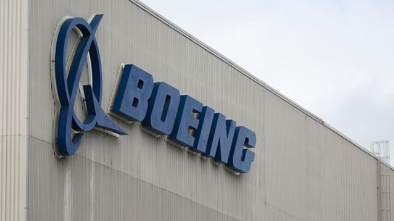Boeing has agreed to admit guilt to a criminal conspiracy charge after the US determined the company violated an agreement aimed at reforming its practices following two fatal crashes involving its 737 Max planes that resulted in the deaths of 346 passengers and crew.
The Department of Justice (DoJ) announced that Boeing also agreed to pay a criminal fine of $243.6 million (£190 million). However, families of the crash victims from five years ago have criticized the settlement as a “favorable deal” that allows Boeing to evade full accountability for the fatalities.
By pleading guilty, Boeing sidesteps the prospect of a public criminal trial, a demand pushed by families of the victims. The company has faced ongoing scrutiny since two similar crashes involving 737 Max aircraft in 2018 and 2019 led to a worldwide grounding of the model for over a year.
In 2021, prosecutors charged Boeing with conspiracy to deceive regulators, alleging it misled the Federal Aviation Administration (FAA) regarding its MCAS flight control system, implicated in both crashes. Boeing agreed to avoid prosecution by paying a penalty and completing an extended three-year period of enhanced oversight and reporting.
However, in January, just before this oversight period was set to conclude, a door panel on an Alaska Airlines Boeing plane blew out after take-off, although no injuries occurred. This incident intensified scrutiny over Boeing’s progress in improving safety and quality standards.
In May, the DoJ declared Boeing had breached the terms of the agreement, opening the door to potential prosecution. Boeing’s decision to admit guilt marks a significant stain on its reputation, as the company, a major US military contractor and one of the world’s top commercial jet manufacturers, now has a criminal record.
The implications of this criminal record on Boeing’s contracting activities remain uncertain. Typically, firms with such records face restrictions from government bids, though waivers can be granted.
However, Paul Cassell, a lawyer representing some families of people killed on the 2018 and 2019 flights, said: “The memory of 346 innocents killed by Boeing demands more justice than this.”
In a letter to the government in June, he urged the DoJ to fine Boeing more than $24bn.
Ed Pierson, executive director of Foundation for Aviation Safety and a former senior manager at Boeing, said the plea was “seriously disappointing” and “a terrible deal for justice”.
“Instead of holding individuals accountable, they’re just basically giving them another get out of jail free card,” he said.
In late October 2018, an Indonesia Lion Air-operated Boeing 737 Max plane crashed shortly after take-off, resulting in the deaths of all 189 people aboard. Just months later, an Ethiopian Airlines plane also crashed, killing all 157 passengers and crew.
Under the 2021 agreement, Boeing agreed to pay $2.5 billion to settle the matter, including a $243 million criminal fine and $500 million to a victims’ fund. Family members expressed outrage, stating they were not consulted on the terms and demanding the company face trial.
According to CBS News and the BBC’s US news partner, senior Department of Justice (DoJ) officials recommended proceeding with prosecution. Senator Richard Blumenthal stated in a June hearing that there was “near overwhelming evidence” supporting prosecution.
Family members’ lawyers indicated the DoJ was concerned about the strength of its case against Boeing. Mark Forkner, a former Boeing technical pilot, faced criminal charges but was acquitted by a jury in 2022. His defense argued he was unfairly targeted as a scapegoat.
Mark Cohen, a professor emeritus at Vanderbilt University specializing in corporate penalties, noted that prosecutors often prefer plea deals or deferred prosecution agreements. These agreements allow them to avoid the uncertainties of a trial while maintaining leverage over the company beyond what a typical sentence might offer.
“Because it’s easier to get than going to trial, it may ease the burden on the prosecutor but the prosecutor also may believe it’s a better sanction [because] they may be able to impose requirements that aren’t normally in sentencing guidelines,” he said.
He said there was little doubt that Boeing’s status as a key government contractor played a role in determining how to proceed.
“They’ve got to think about the collateral consequences,” he said. “You don’t take these kinds of cases lightly.”
The issues with MCAS were not Boeing’s first brush with the law.
It has also paid millions of penalties to the Federal Aviation Administration since 2015 to resolve a series of claims of improper manufacturing and other issues.
The company also continues to face investigations and lawsuits sparked by the incident on the January Alaska Airlines flight.



